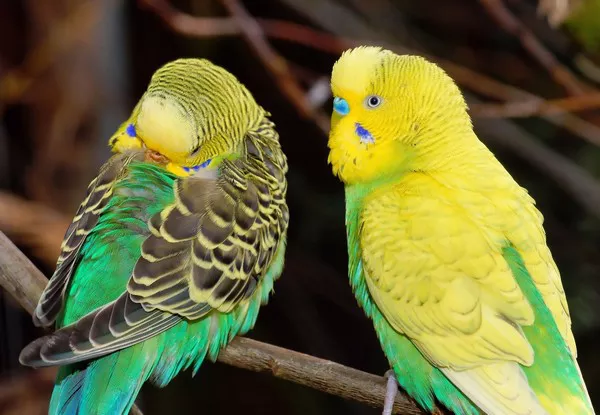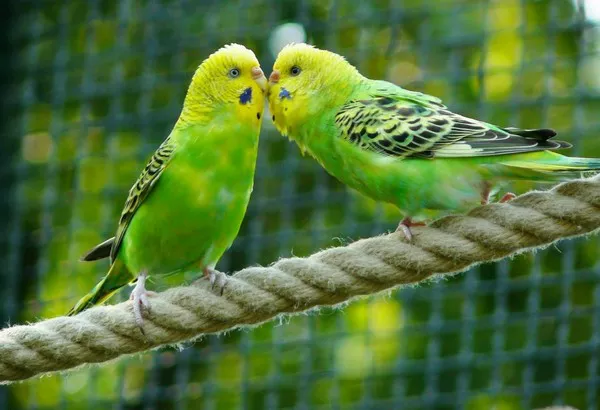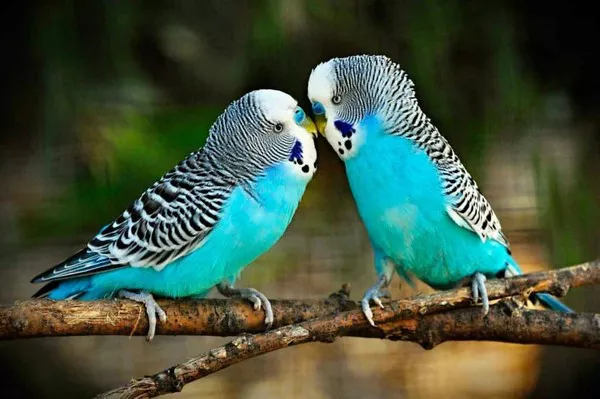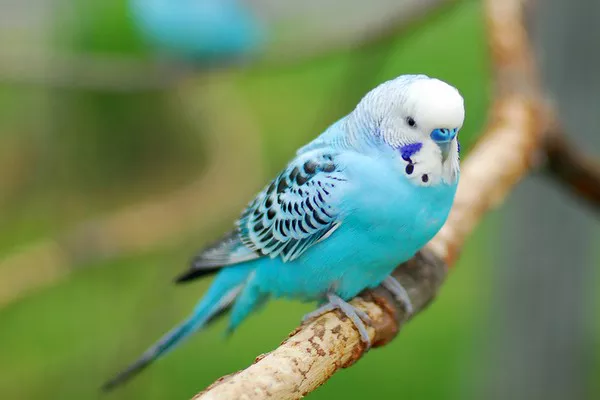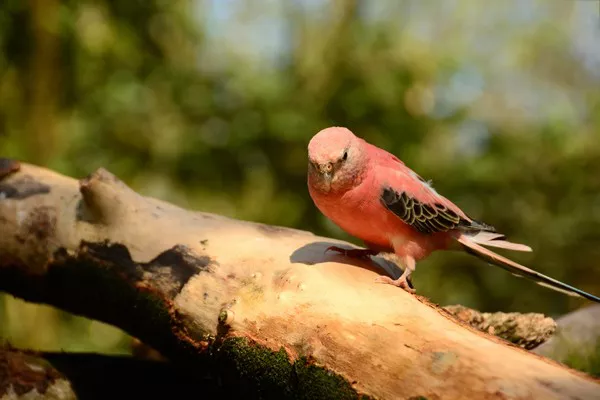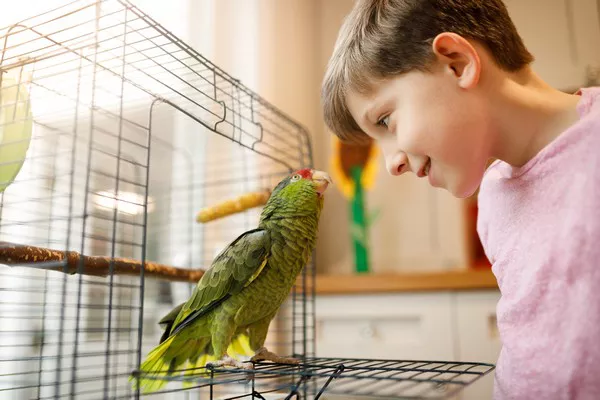Sun conures are colorful and intelligent parrots known for their vibrant plumage, playful personalities, and strong bond with their owners. As a pet owner of a sun conure, providing a balanced and nutritious diet is essential for the health and well-being of your bird. While seeds, pellets, and nuts are commonly used as staples in their diet, fruits can also be an important part of their meals. This article will explore the types of fruits that are safe and healthy for sun conures, how to prepare them, and how fruits can contribute to your bird’s overall nutrition.
Sun conures (scientific name: Aratinga solstitialis) are medium-sized parrots native to South America, specifically found in countries like Brazil, Guyana, and Suriname. These birds are known for their striking appearance, with bright yellow, orange, and green feathers. They are also popular as pets due to their affectionate nature, strong social bonds, and intelligence.
In the wild, sun conures are primarily seed eaters, but they also enjoy a variety of fruits and vegetables. As a pet, it’s important to mimic their natural diet as closely as possible to keep them healthy and happy. This includes providing fresh fruits, which are rich in vitamins, minerals, and other nutrients.
Why Fruits Are Important for Sun Conures
Fruits are an excellent source of essential nutrients like vitamins A, C, and K, as well as fiber, antioxidants, and natural sugars. These nutrients support various aspects of a sun conure’s health, from boosting their immune system to promoting good digestion. Fruits also provide hydration, as many fruits contain a high percentage of water.
In addition to being nutritious, fruits are a fun and engaging treat for your sun conure. The bird’s natural curiosity and love of foraging make fruits a great way to enrich their environment and stimulate their minds. Offering a variety of fruits can also help prevent boredom and encourage healthy eating habits.
Key Nutrients in Fruits for Sun Conures
Vitamin A: Important for maintaining good eyesight, skin health, and immune function. Fruits like mangoes, papayas, and cantaloupes are rich in vitamin A.
Vitamin C: Supports the immune system and helps in the repair of tissues. Fruits like oranges, strawberries, and kiwis are high in vitamin C.
Vitamin K: Essential for proper blood clotting and bone health. Kiwi and blackberries are excellent sources of vitamin K.
Fiber: Helps with digestion and maintains healthy gut function. Apples, pears, and figs are high in fiber.
Antioxidants: Help protect the body from harmful free radicals. Berries like blueberries, raspberries, and strawberries are great sources of antioxidants.
Water: Hydrates the body and helps with the proper functioning of organs. Fruits like watermelon and cucumbers are excellent sources of water.
Safe Fruits for Sun Conures to Eat
While many fruits are safe and beneficial for sun conures, some fruits are harmful and should be avoided entirely. Below is a list of safe fruits that your sun conure can enjoy as part of a balanced diet, along with some helpful guidelines on how to prepare them.
1. Apples
Apples are a great choice for sun conures because they are packed with fiber and vitamin C. They also contain antioxidants that can help protect your bird’s cells from damage. When offering apples, it’s important to remove the seeds, as they contain cyanide, which is toxic to birds. Apples can be served raw and cut into small, manageable pieces.
How to Serve: Wash the apple thoroughly, slice it into small wedges, and remove the seeds before offering it to your sun conure.
2. Mangoes
Mangoes are another excellent fruit for sun conures, as they are rich in vitamins A and C. These vitamins are essential for eye health and immune function. Mangoes also contain enzymes that can aid in digestion, making them a healthy treat for your bird.
How to Serve: Peel the mango and cut it into small chunks. Make sure to remove the pit before offering it to your bird.
3. Grapes
Grapes are a favorite among many birds, including sun conures. They are small, easy to eat, and packed with vitamins and antioxidants. Grapes also have a high water content, which can help keep your sun conure hydrated. However, grapes should be fed in moderation because they are high in sugar.
How to Serve: Wash the grapes thoroughly and cut them in half to make them easier to eat.
4. Berries (Strawberries, Blueberries, Raspberries, Blackberries)
Berries are excellent for sun conures because they are rich in antioxidants, which help protect their cells from oxidative stress. Berries are also high in vitamin C, which is crucial for the immune system. Additionally, berries are low in sugar and high in water content, making them a refreshing and healthy treat.
How to Serve: Wash the berries thoroughly and offer them whole or cut into smaller pieces, depending on the size of the berry.
5. Papayas
Papayas are an excellent source of vitamin A, which is essential for maintaining healthy eyesight. They also contain enzymes that aid in digestion and can help prevent issues like constipation. Papayas are a tropical fruit that sun conures would encounter in their native environment, so they are familiar with the taste and texture.
How to Serve: Peel the papaya, remove the seeds, and cut it into small cubes or slices for easy eating.
6. Bananas
Bananas are rich in potassium and provide a good amount of fiber, making them an excellent choice for sun conures. They also contain vitamin B6, which supports healthy nerve function. While bananas are relatively high in sugar, they can be given as an occasional treat.
How to Serve: Peel the banana and slice it into small rounds or chunks. Avoid offering the peel, as it can be difficult for your bird to digest.
7. Kiwis
Kiwis are a great source of vitamin C, vitamin K, and antioxidants. They are also high in fiber, which aids in digestion. The tangy taste of kiwis may appeal to sun conures, and they are a fun fruit to offer due to their unique texture.
How to Serve: Peel the kiwi and slice it into small pieces. Make sure to remove any seeds if they pose a choking hazard.
8. Pears
Pears are another excellent fruit for sun conures, as they are rich in fiber and vitamin C. They also have a high water content, which helps keep your bird hydrated. Pears are easy to digest and can be a great snack or addition to your bird’s regular meals.
How to Serve: Wash the pear, remove the core, and cut it into small slices or cubes.
9. Watermelon
Watermelon is a hydrating fruit that is low in calories but high in vitamins A and C. Sun conures can enjoy both the flesh and the seeds of watermelon, as the seeds are safe for birds. However, it’s important to remove the rind, as it can be difficult for your bird to digest.
How to Serve: Cut the watermelon into small pieces and remove the rind. You can also offer small cubes of the fruit for easier consumption.
10. Pineapple
Pineapple is another tropical fruit that is rich in vitamin C and manganese. It also contains bromelain, an enzyme that aids in digestion. Pineapple can be a sweet and tangy treat that sun conures will enjoy.
How to Serve: Peel the pineapple, remove the core, and cut it into small, bite-sized pieces.
11. Peaches and Nectarines
Peaches and nectarines are both rich in vitamins A and C, which are beneficial for the immune system and skin health. They are also a good source of dietary fiber. These fruits are sweet and juicy, making them a tasty and healthy snack for your sun conure.
How to Serve: Wash the fruit, remove the pit, and cut it into small pieces before offering it to your bird.
12. Cantaloupe and Honeydew Melon
Cantaloupe and honeydew melon are packed with vitamins A and C, making them an excellent choice for sun conures. These melons also have a high water content, which helps keep your bird hydrated, especially during hot weather.
How to Serve: Remove the seeds and rind, and cut the melon into small, manageable pieces.
Fruits to Avoid
While many fruits are safe for sun conures, there are certain fruits that should be avoided due to their toxicity or high sugar content. These fruits can be harmful to your bird’s health and should not be fed under any circumstances.
1. Avocados
Avocados are toxic to birds, including sun conures. They contain a substance called persin, which can cause heart damage, respiratory problems, and even death in some birds. It’s important to avoid feeding your bird any part of an avocado, including the flesh, skin, and pit.
2. Cherries
While cherries are a delicious fruit, the pits contain cyanide, which is highly toxic to birds. Even though the flesh of the cherry is safe to eat, the risk of the bird ingesting the pit is too great to safely offer this fruit.
3. Citrus Fruits (Oranges, Lemons, Limes)
Although citrus fruits like oranges and lemons are high in vitamin C, they are acidic and can cause digestive upset in sun conures. In large amounts, citrus fruits may also irritate your bird’s mouth, crop, or stomach lining. Moderation is key if you choose to offer citrus fruits at all.
4. Rhubarb
Rhubarb is another fruit that is toxic to birds. It contains oxalic acid, which can cause kidney failure, digestive issues, and even death in severe cases. It’s important to keep rhubarb out of your sun conure’s diet completely.
How to Safely Introduce Fruits to Your Sun Conure
When introducing new fruits to your sun conure, it’s important to start slowly and observe how your bird reacts to the fruit. Not all birds will immediately take to new foods, so be patient and offer a variety of fruits to see what your bird enjoys. Here are a few tips for safely introducing fruits to your sun conure:
Wash Fruits Thoroughly: Always wash fruits to remove pesticides, dirt, and other chemicals that could be harmful to your bird.
Start with Small Portions: Offer small pieces of fruit at first to see how your bird reacts. Too much fruit at once can upset your bird’s digestive system.
Remove Seeds and Pits: Always remove any seeds, pits, or stones from fruits, as these can pose choking hazards or contain toxic substances.
Monitor for Reactions: Keep an eye on your bird after introducing a new fruit. If your sun conure experiences any signs of digestive upset, such as diarrhea or vomiting, discontinue the fruit and consult a veterinarian.
Rotate Fruits: To provide a variety of nutrients and prevent boredom, rotate different fruits into your bird’s diet regularly.
Conclusion
Fruits can be a nutritious and enjoyable addition to your sun conure’s diet. By offering a variety of safe fruits, you can provide your bird with essential vitamins, minerals, and antioxidants that contribute to its overall health and well-being. Always be mindful of which fruits are safe and which should be avoided, and remember to introduce new foods gradually. By incorporating fruits into a balanced diet, you can help your sun conure lead a long, healthy, and happy life.
Related Topics:

